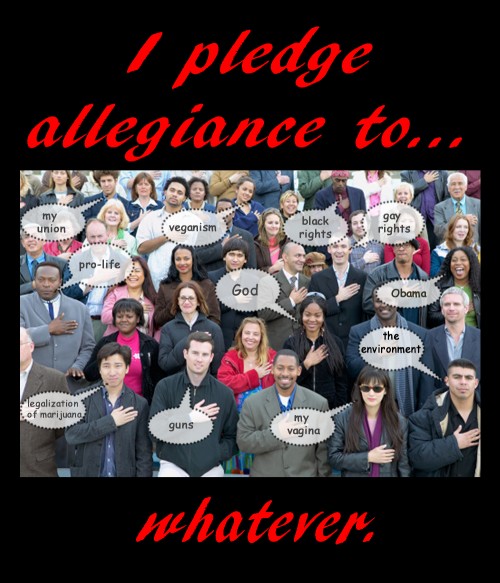This morning I saw on the news that a British politician bemoaned multiculturalism and its poisonous fruits as a result of Britain (and, by extension, America) having abandoned God. Usually this kind of statement exasperates me, but the more I listened, the more I saw his point. And, though I am not a theist, I suspect he is right in his diagnosis, though not in his implied prescription. You’re not going to like this.
I believe the politician was talking about what the great sociologist-theologian Peter L. Berger called “the Sacred Canopy.†Traditional societies were insular. The Sacred Canopy is the system, the hierarchy of values and beliefs of such a society. Each more, each law, each custom, each belief, each assumption is another brick in the vault ceiling. They all support one another; the practices are legitimatized by the values, which in turn are legitimatized by the beliefs. The ultimate punch line is that the gods gave the laws to Moses, Hammurabi, Muhammad, etc. Of course the laws were the invention of entirely human elders and ancestors, not of gods. Like the framers of our Constitution, the elders knew the laws were their own ad hoc invention. But they passed them on to the next generation who did not create them but merely received them. Invention magically becomes tradition. The human elders who bestow the laws upon the next generation are the real-life analogues to the mythic deities who are imagined to have issued the laws and to guarantee not only their validity but also the punishment of those who transgress (at least that’s the threat). It’s called priestcraft when you are the ones who set the system up in the name of the gods. But when that second generation inherits their elders’ position and authority, they do so with sincere belief in the gods and in their own god-given mandate.
When the pre-Socratic Sophists, having traveled outside of Athens, returned, they told people what they had learned, namely, that the way they do things in Athens isn’t necessarily the way they do things over in Sparta, much less in Egypt or Babylon. And what makes us think the Athenian way is “the†right one? Don’t they think the same in those other places? The erosion began.
Did you ever see the TV miniseries/DVD Pillars of the Earth? In it, much effort goes into the building of a medieval cathedral. Finally ready, the structure opens its doors to the public. Worshippers pour in, gazing up to the hemispherical ceiling. And then the bricks start descending, and everyone who is not beaned by the liberated stones makes a beeline for the exits. It was to prevent such collapses that architects used to insert the keystone at the very top of the dome. Pull that out, and gravity seizes the day. Look out below!
God is the keystone. Pull it out and everything else will collapse. That was the British politician’s point, I think. But is that collapse inevitable? Well, at least not immediately. We might adopt the stance of the Sophists. Perceived as subversives, they did not actually attack Athenian tradition, lock, stock, and barrel. They were pragmatic: If it ain’t broke, don’t fix it. Just because “our†system is not uniquely valid, no better than others, that doesn’t make it invalid. Sure, there is room for improvement, but why be so disillusioned with the old claims of divine sanctions that you throw out the baby with the bathwater? This chastened stance allows you to accept the ways of others if they don’t impinge upon yours.
But suppose societies begin to interpenetrate, e.g., via trade and immigration? Pluralism eventually morphs into fragmentation. It represents the taking into the very heart of one’s society the tolerance of the Other, so that everyone is the Other. No more social identity, no more coherent worldview. No transcendent sanction or reason for our ways. No more “our†ways. In our case, look at the polarization on matters like abortion, healthcare, euthanasia. There seems no longer to be a common ground from which to settle these issues.
We were able to delay the shattering of the American Sacred Canopy by the clever expedient of creating a second, secular religion, the so-called Civil Religion that united us as Americans with a common heritage and value system. This was the model of the Social Compact or Social Contract. Again, purely pragmatic: maximize freedom for all, limiting freedom only when it would impinge upon another’s. No revelation claimed or needed. But now that, too, has broken down. Our society harbors fundamentally different values and interests, our populations making their American identity secondary to their ethnic identities, no longer willing to assimilate into the Melting Pot. Someone said the Melting Pot has become the Salad Bowl, but I think it has become the Compost Heap.
Why are Jihadists such a threat to the rest of us? Because they still have a Sacred Canopy, Sharia Law based (they think) upon divine revelation. We have none. We cannot agree even to defend our way of life and culture, since powerful interests within our country reject key aspects of it. Socialism, environmentalism, isolationism, multiculturalism, Political Correctness all make fundamental agreement on urgent matters nearly impossible.
Of course our enemy need not be Islamic (or Christian) theocracy. One can propound a totalitarian agenda without God. Political Correctness, with its speech codes, its constant ad hominem attacks on dissenters, its ludicrous charges of racism, the corruption of the press as the government’s propaganda bureau, the government’s mandated menus, the militant atheist jihad against public expressions of religion—or even of patriotism: all this is the intolerant Sharia of the Left.
Leftists protest that they are not anti-American, but anyone who advocates being a “citizen of the world,†“thinking globally and acting locally,†is admitting that he is opposed to putting his own country’s interests first. It is all right with him if other countries to put their people’s interests first. The same principle underlies the double standard of “diversity.†It is the blindness of the freshman anthropology student who, impressed with the variety of world cultures, concludes that all are valid—except ours. Multiculturalism is “World Citizenship†writ small: the replacement for patriotism. Everybody but us.
Of all the labels I might choose, I prefer “freethinker†to “atheist†or “humanist.†And I recognize that the very trends dissolving the American community are the result of individualism and free thinking. People are unwilling to be told they owe allegiance to anything anymore. The greatest axiom is “Question authority.†This is why church attendance is rapidly shrinking. Not that I mind. In fact, I have always urged people to think for themselves, to question authority, to be individuals. I love seeing a herd of cats, as they say. I take people as individuals, and so I can sympathize with liberals who want to show compassion for illegal immigrants, even imprisoned terrorists. They are people, individuals, no matter what category we place them in, and people per se deserve respect and compassion. But I am aware that this concentration on the trees obscures the forest. There is a Bigger Picture that we ignore at our peril.
I am afraid that the truth may not work. I think there is no God. It may well be that, for the sake of maintaining the Sacred Canopy, we do need a God, but that doesn’t mean there is one. But even if, for the sake of social, moral, and political consistency, you wanted all Americans to return to God, it’s way too late for that.
Secularists and Progressives do not see things this way. I have loved and lived by radical individualism ever since I watched Patrick McGoohan’s The Prisoner back in 1968. Let a hundred flowers bloom. In fact, let six billion flowers bloom. But what if we face an existential threat? Is it really an invasion of privacy to require AIDS or Ebola testing? To profile Arab airline passengers?
Think of Maslow’s hierarchy of needs. Some needs kick in only once the basic needs for health and safety are squared away. Joining an orchestra to play the violin is not the best idea if we need people to join an army to defend a society that appreciates orchestras. Otherwise, one is fiddling while Rome burns.
I think there is a natural cycle: the more enlightened and sensitive a people becomes, the greater its danger, the sooner it will fall before the assaults of barbarians. Sophistication breeds self-absorbed decadence. When a society becomes little more than a debating society, it becomes paralyzed. That’s us. When we are too good (or too preoccupied) to fight our enemies, we invite evil to prevail. And it is our very virtues that will have made us impotent.
When a civilization allows itself to become too civilized, taking advantage of its leisure to amuse itself with hyperbolic morality and theoretical, ivory tower ideological fantasies far removed from reality, it is living in a bubble that is asking to be popped. And soon the Klingons will arrive to pop it. It is an eternal pendulum swing, for the triumphant barbarians will eventually kick back and enjoy the opium dreams of over-sophistication—until some younger, more virulent group of savages shows up to dump them out of their padded wheelchairs.
So says Zarathustra.



13 Responses to The Decline of the Best